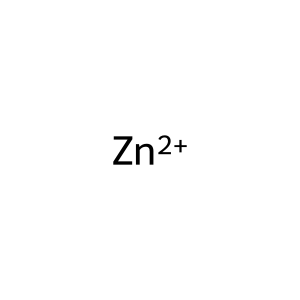Reaction: SLC39A1-4 transports Zn2+ from extracellular region to cytosol
- in pathway: Zinc influx into cells by the SLC39 gene family
The human gene SLC39A1 encodes the human zinc transporter hZIP1. It is ubiquitously expressed (Lioumi M et al, 1999) and mediates the influx of zinc into cells (Gaither LA and Eide DJ, 2001).
The human gene SLC39A2 encodes the zinc transporter hZIP2. It is expressed exclusively in prostate and uterine epithelial cells and mediates zinc transport into cells (Gaither LA and Eide DJ, 2000).
Normal prostate cells have the ability to accumulate high levels of zinc. In prostate cancer, hZIP1-3 transporters are down-regulated and the cells lose the ability to accumulate zinc. Zinc plays a role as a tumour-suppressing agent thus prostate cells can become cancerous. Silencing of the genes that express hZIP1-3 transporters is a required event for malignancy (Costello LC et al, 1999; Desouki MM et al, 2007).
The human gene SLC39A4 encodes the zinc transporter hZIP4 (Kury S et al, 2002). The role of zinc in tumour progression is complicated and, subsequently, so are the role of ZIP transporters. For example, ZIP4 can actually enhance cancer progression (Li M et al, 2007; Li M et al, 2009). Defects in SLC39A4 result in the inherited condition acrodermatitis enteropathica (AE) results from defective absorption of dietary zinc from the duodenum and jejunum. Clinical features include growth retardation, immune system dysfunction, severe dermatitis and mental disorders (Wang K et al, 2002).
The human gene SLC39A2 encodes the zinc transporter hZIP2. It is expressed exclusively in prostate and uterine epithelial cells and mediates zinc transport into cells (Gaither LA and Eide DJ, 2000).
Normal prostate cells have the ability to accumulate high levels of zinc. In prostate cancer, hZIP1-3 transporters are down-regulated and the cells lose the ability to accumulate zinc. Zinc plays a role as a tumour-suppressing agent thus prostate cells can become cancerous. Silencing of the genes that express hZIP1-3 transporters is a required event for malignancy (Costello LC et al, 1999; Desouki MM et al, 2007).
The human gene SLC39A4 encodes the zinc transporter hZIP4 (Kury S et al, 2002). The role of zinc in tumour progression is complicated and, subsequently, so are the role of ZIP transporters. For example, ZIP4 can actually enhance cancer progression (Li M et al, 2007; Li M et al, 2009). Defects in SLC39A4 result in the inherited condition acrodermatitis enteropathica (AE) results from defective absorption of dietary zinc from the duodenum and jejunum. Clinical features include growth retardation, immune system dysfunction, severe dermatitis and mental disorders (Wang K et al, 2002).
Reaction - small molecule participants:
Zn2+ [cytosol]
Zn2+ [extracellular region]
Reactome.org reaction link: R-HSA-442422
======
Reaction input - small molecules:
zinc(2+)
Reaction output - small molecules:
zinc(2+)
Reactome.org link: R-HSA-442422

